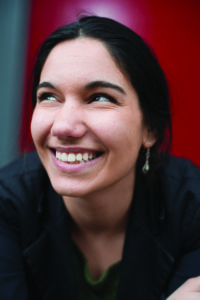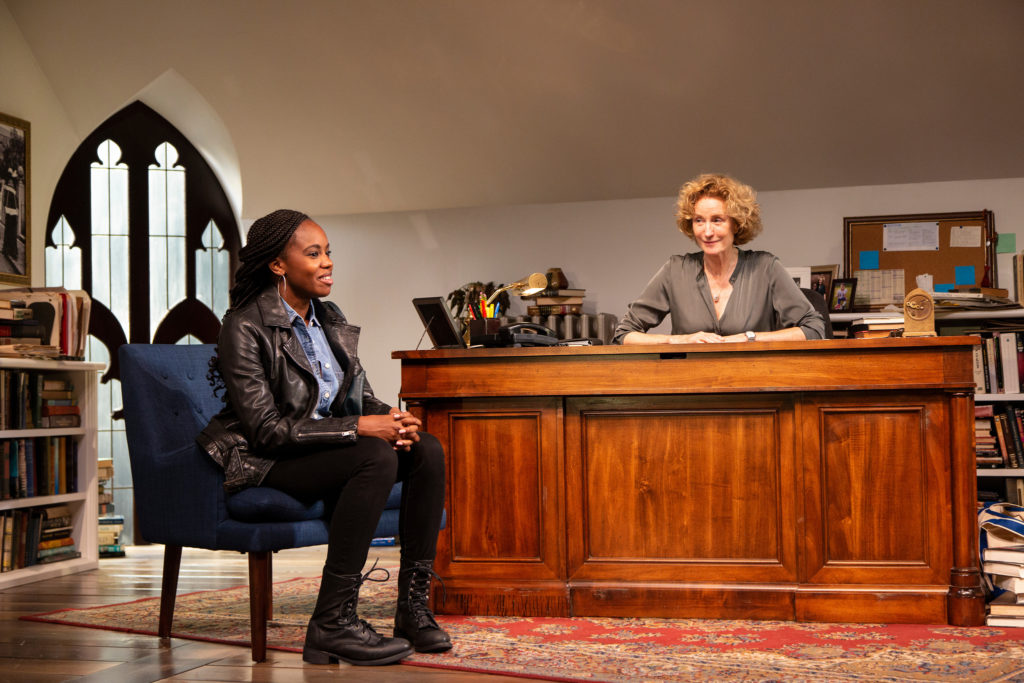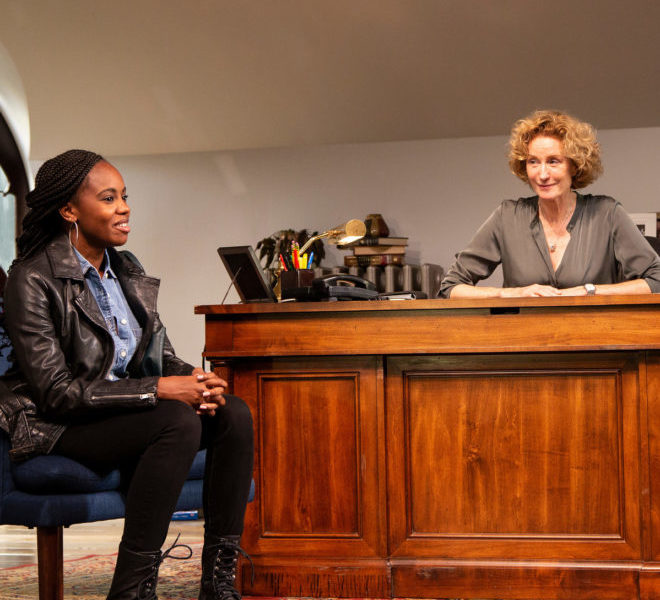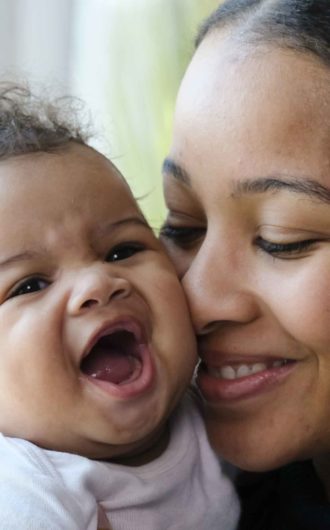
Photo courtesy of Huntington Theatre Company
A way with words: Playwright Eleanor Burgess is bringing tough questions to Boston theater
Eleanor Burgess wants to talk about race. And that’s exactly what she does in her play The Niceties, showing at the Huntington Theatre Company through Oct. 6. Inspired by an incident at her alma mater, Yale College, Burgess took the complicated, emotional conversation about race and put it on stage.
In The Niceties, a black college student named Zoe meets with her white professor Janine to discuss a paper on the role of slavery in the American Revolution.
A conversation beginning with commas and source citing rapidly turns tense as the two liberal women realize there’s more distance between them than they realized. The gripping, emotional performance leaves audiences with bated breath to see what, if any, conclusion is reached.
Burgess chose the American Revolution very specifically. As a former high school history teacher, she understands the importance of the past. “If we can’t all tell ourselves the same story about where our country came from, can we participate in the same country? Can we build an America?” she says. Burgess says growing up in Brookline, Massachusetts, so close to so much history inspired her love of the past.
With both characters I’m writing outside of my own experience. Having them be women was a bit of a chain to tie myself to them, to find myself in them.
Almost the entire team working on the production is female, from the cast to costume, lighting, and scenic design. Burgess says making the characters female kept an already challenging conversation from being further complicated by the power dynamic between sexes. As a young, white woman writing a black character and a middle-aged character, the female connection also grounded Burgess in her own knowledge. “With both characters I’m writing outside of my own experience,” she says. “Having them be women was a bit of a chain to tie myself to them, to find myself in them.”

Photo courtesy of Huntington Theatre Company
Worlds collide: Characters in The Niceties discover that all liberal viewpoints are not created equal
The show is set in the spring of 2016 and that’s when Burgess wrote it. Though some lines are painful in hindsight (like, “We’re about to have our first female president!”), a dialogue about oppression couldn’t be more relevant. “We’ve all been in these conversations in the last two years,” says Burgess. “For the audience to watch it on stage instead of participating in it means you can finally hear it. When you’re feeling attacked you hear nothing and you learn nothing.”
Burgess was learning even while she wrote the show. She admits she was changing words and making minor edits in rehearsal even a few days before the show opened. “Theater’s wonderful because you have all these collaborators. You talk with people and they tell you when they’re tripping up on a line or when they don’t think that’s something they would say.” She also notes that plays, unlike novels, depict what a character says, not always what they’re feeling. Burgess had heard the dialogue before, but the actors helped her find the backstory.
Above all, Burgess hopes The Niceties will allow audiences to hear both sides of the story, or in this case, the argument, and grow from it. She says, “In Act Two it becomes, ‘Once we see we have a problem, how do we make a change?’ And that’s an incredibly 2018 question.”
Eleanor Burgess’s Advice for Female Playwrights



 4 min read
4 min read



